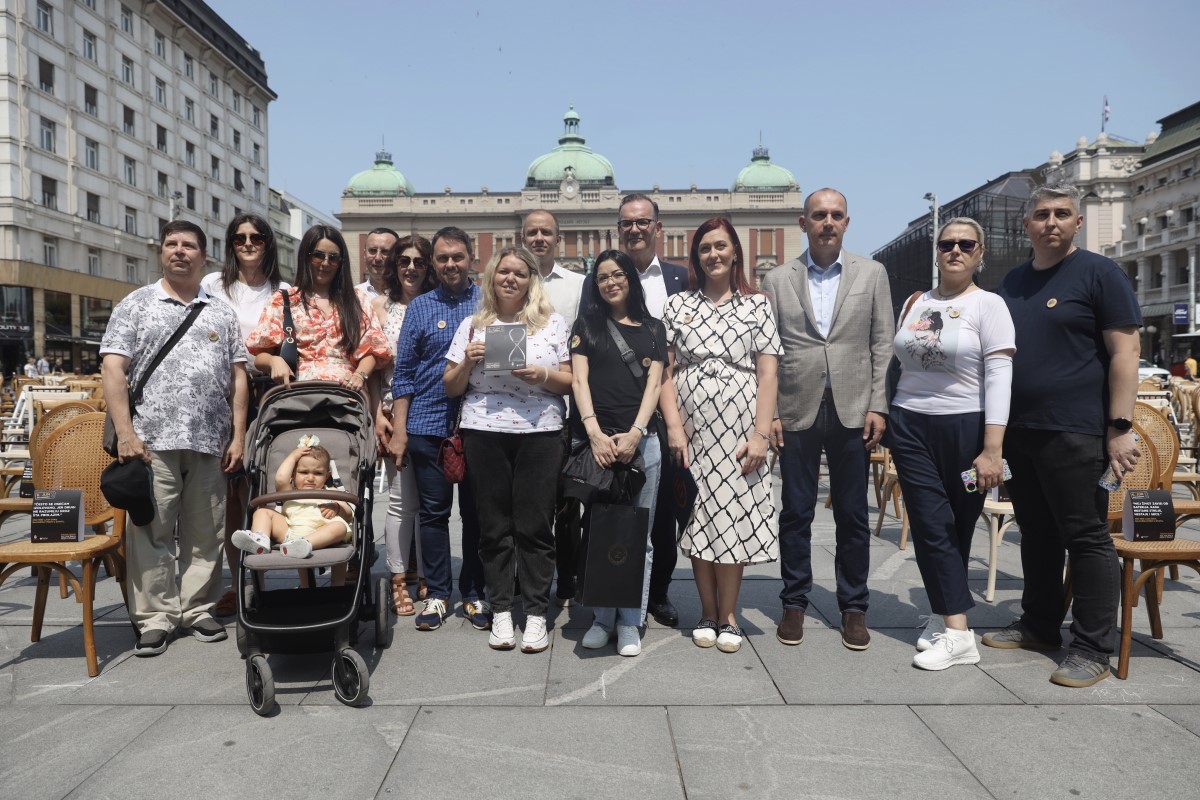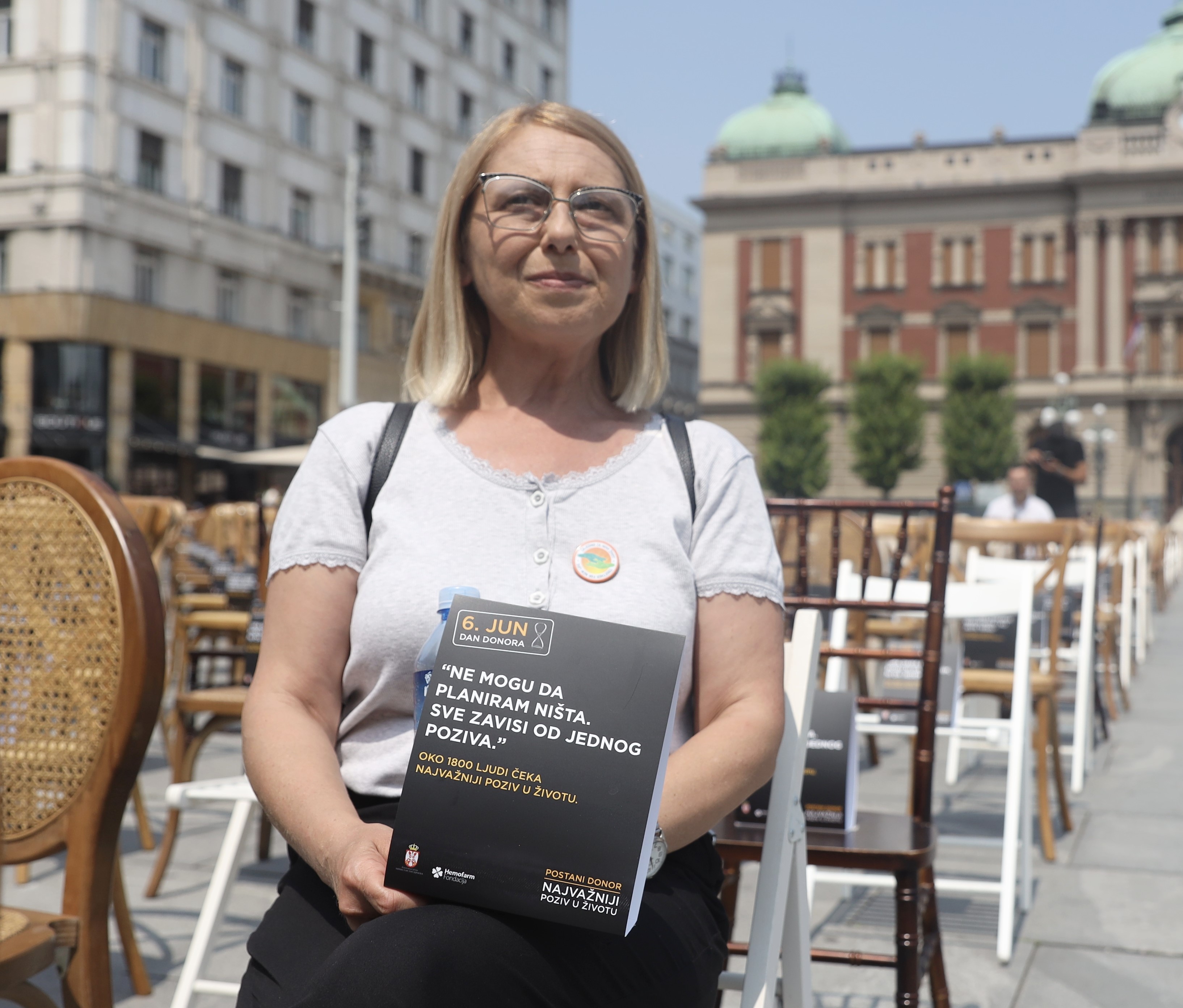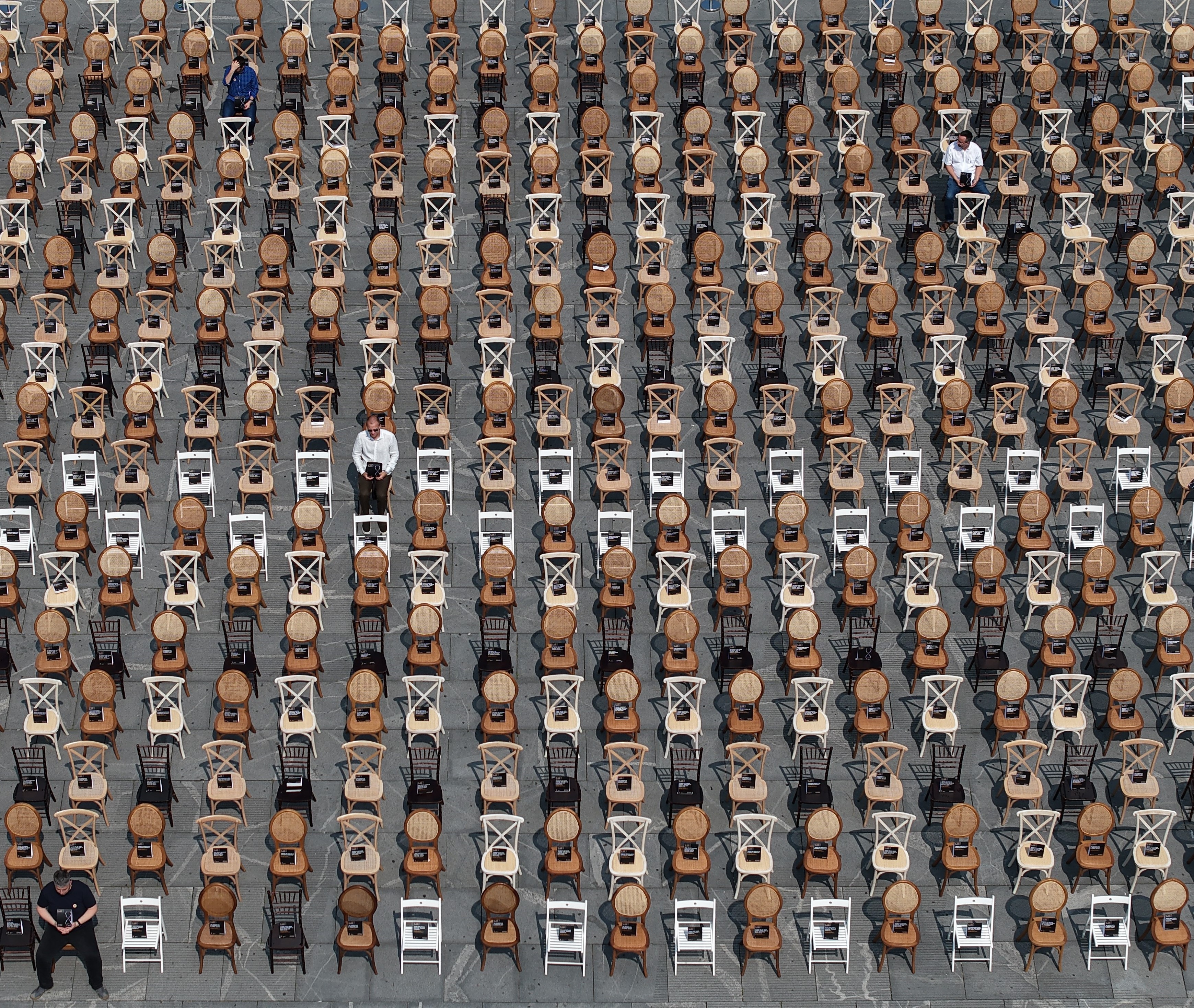The National Donor Day as a Reminder of the Importance of Transplantation
The installation of 1,800 chairs at the Republic Square in Belgrade, each representing a patient waiting for the most important call – the call for organ transplantation – marked the observance of The National Donor Day – June 6. Each chair carried personal messages that testify to the uncertainty, struggle, and hope for a better tomorrow.
This date was established as part of the campaign "The Most Important Call in Life" launched in 2016 by the Ministry of Health of the Republic of Serbia, Hemofarm Group, and Hemofarm Foundation, in cooperation with patients’ associations. The campaign aims to increase the number of organ donors and transplants, advocate for the adoption of legislation regulating this field, and support Serbia's membership in the Eurotransplant organization.
“We mark National Donor Day with around 1,800 patients currently on the transplant waiting list. This is encouraging, given that Serbia’s transplantation statistics in previous years were far from satisfactory. The greatest obstacles to increasing the number of donors and organ transplants remain public prejudice, fear, and stigma. As a society, we must normalize conversations on this topic, as families often don’t know what the wishes of their deceased loved ones were. I understand it is not easy to start this conversation, but it is crucial for saving lives that we openly talk about our decisions and wishes,” said Dr. Zlatibor Lončar, Minister of Health of the Republic of Serbia. He added that “a working group has been formed and is actively working on amendments to the law in order to improve the legal framework and strengthen the donor system.”

Ronald Seeliger, CEO of Hemofarm, and Zlatibor Lončar, Minister of Health, with patients waiting for organ transplantation
“Since 2016, we have led a national campaign to increase the number of organ donors and transplants. Personally, I deeply believe that every individual can make a significant contribution to the world around them – through both small and large acts, not only for our loved ones but also for people we do not know. Humanity must never have limits, and organ donation is the ultimate act of human kindness – one that helps others continue living. That is why I invite everyone to support organ donation. Sometimes, one gesture of compassion is all it takes to change someone’s life for the better,” stated Ronald Seeliger, CEO of Hemofarm.

A female patient waiting for a donor with the message: 'I can't plan anything. Everything depends on one phone call.'
When the campaign “The Most Important Call in Life” was first launched in 2016, the number of donors in Serbia tripled. In 2019, the campaign entered its “second half” by enlisting the support of Serbia’s most celebrated athletes. Playing on national pride, the campaign reversed a discouraging trend that placed Serbia at the bottom of Europe in donor numbers, far behind neighboring countries. “I am a donor – because I cheer for Serbia,” was the message conveyed by champions such as Ivana Španović, Maja Ognjenović, Dejan Stanković, Dejan Savić, Branko Lazić, Dragan Škrbić, and Zoran Tošić. These accomplished athletes contributed to breaking stigma and spreading awareness, helping increase donor numbers and save lives.
However, the COVID-19 pandemic – the most significant public health crisis of our time – brought the national transplantation program to a near standstill. In 2022, only two transplants were performed. This prompted the relaunch of the campaign in 2023, resulting in 38 transplants that year. The following year, the campaign continued with a powerful public installation of 2,000 hourglasses, symbolizing the 2,000 people waiting for an organ transplant. With the slogan “Become Better People. Be a Donor,” the campaign once again drew public attention to the urgent need for a more compassionate and responsible society. Thanks to the campaign and the consent of nine families, 44 transplants were performed in 2024. Additionally, the Serbian Orthodox Church publicly declared its position, stating: "The Church agrees with organ transplantation if the donor voluntarily pledged their organs and the family gave posthumous consent."
Since the beginning of 2025, with the consent of 9 donors, 40 organ transplants have been carried out in Serbia – more than in the same period last year. However, 10 families refused to donate the organs of deceased relatives.
According to the Biomedicine Directorate of the Ministry of Health of Serbia, around 1,800 people in the country are currently waiting for a transplant – among them, approximately 15 are children.

An installation of 1,800 chairs symbolically representing the 1,800 people waiting for an organ transplant.
Become better people. Be a donor.